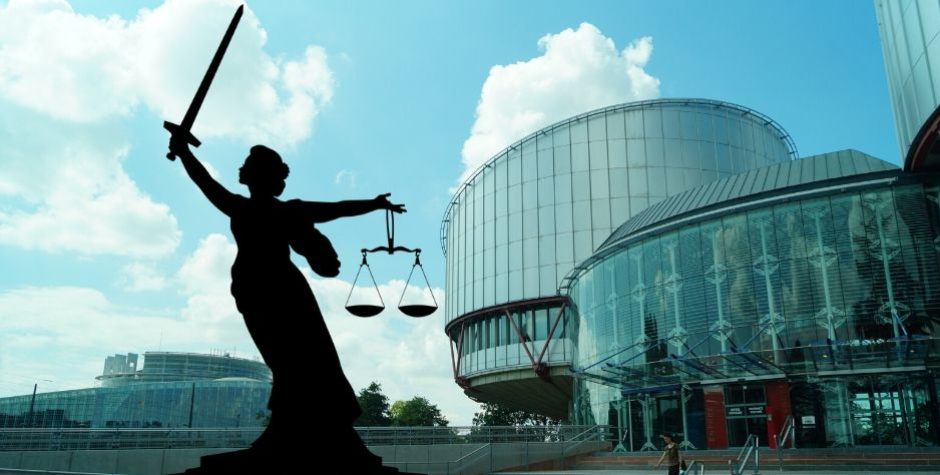The ECLJ Report on the European Court of Human Rights (ECHR) continues to bear fruit. The Court has just publicized an amendment to its rules for greater transparency. It's a real procedural improvement that the ECLJ had specifically suggested to the Court.
On March 20, 2023, the European Court of Human Rights (ECHR) published a revised version of its Rules, to which it appended a new "Practice Direction" on third-party interventions. In its fifty articles, the Court now specifies the purposes, terms, and conditions of third-party interventions.
The ECLJ welcomes the fact that the European Court has adopted some of the recommendations made in its report “NGOs and the Judges of the ECHR.” In 2021, the Court had already modified its resolution on judicial ethics following the ECLJ's report (see our explanation of the changes here).
Third-party interventions are observations on a particular case that are submitted by States, organizations, or individuals who are not parties to that case, which the Court receives "in the interests of justice." This is the preferred method for NGOs to interact with the Court. This procedure is highly beneficial, although the interveners’ supposed neutrality and externality to a case are often only a façade. By intervening in a case, NGOs aim to enlighten the Court and, in so doing, persuade it to adopt its own position. The ultimate goal is to influence the development of the Court's case law. In doing so, NGOs can influence the development of European law at large. The ECLJ has intervened in more than sixty cases over the last 15 years.
Until recently, third-party intervention at the ECHR has been poorly regulated, which has led to abusive practices by some NGOs. In its report on “NGOs and the Judges of the ECHR” (2020), the ECLJ exposed some of these practices. In particular, the ECLJ exposed "false third-party interventions," which can take several forms.
Most often, these are "third-party" interventions submitted to the Court by NGOs at the request of one of the principal parties, sometimes even drafted by that party.
Another abusive practice is for an NGO to introduce a case unofficially so it can simultaneously intervene as a third party. It can thus support its own cause from a supposedly neutral and external point of view.
Some NGOs have even acted openly as the petitioner's representative while simultaneously being a third-party intervener in the same case. Such was the case of the Bulgarian Helsinki Committee in Neshkov et al. v. Bulgaria.[1] The Court awarded costs to the Bulgarian Committee as the applicant's representative, even though it was also intervening as a third party. The Bulgarian Helsinki Committee was founded by the current Bulgarian judge at the ECHR, Yonko Grozev.
Finally, NGOs often act as a group or in a concerted manner so that multiple third-party interventions are made under the direction of the NGO representing the claimant in a case. Here again, the external nature of the third-party interventions is wholly fictitious. The respondent government, in these cases, is forced to defend itself not against a petitioner but against a coalition. These practices constitute a gross abuse of procedure.
In light of these practices, the ECLJ recommended in its 2020 report that the Court:
“establish[] a request form for third-party interventions in which the person requesting to intervene should declare his interests, the origin of his financing as well as his possible links with the parties, in particular if they collaborate. The aim is not to prevent partisan third-party intervention, but to improve their transparency, following the example of the ‘transparency register’ in use at the European Parliament.”[2]
In its new "Practice Direction," the Court now requires that any application for third-party intervention contain "enough information about: a) the would-be third-party; b) any links existing between th[is] would-be third-party and any of the parties to the case; c) the reasons why the would-be third-party wishes to intervene."[3]
The ECLJ welcomes the publication of this practice direction but notes that other problems still remain. For example, the Court should be required to notify all “interested third parties” in a case brought before it and guarantee them the right to intervene. These interested third parties may include "the applicant's adversary in the domestic civil proceedings that gave rise to the individual application before the Court, or the other parent in child custody cases."[4] The Court's judgment may directly affect the rights and interests of such persons, so it is only right that they should be involved in the proceedings. In its Practice Direction, the Court acknowledges that “for such interested third parties, 'the interests of justice' may require that they be heard before the Court rules on a question which may, even if indirectly, affect their rights."[5] But these interested third parties have to be notified of the existence of the appeal before they can present an argument. At present, there is no requirement for this to be the case. As a result, the Court often rules without hearing these peoples’ arguments, denying them the chance to defend themselves. This is a structural flaw in the procedure of the ECHR that must be corrected, even if it means a small additional workload for the Court.
Secondly, the third-party intervention process would appear less arbitrary if the Court was required to justify its decisions rejecting applications to intervene.
The ECLJ will continue to closely monitor the Court's reform process to ensure its independence and impartiality are as exemplary as possible. You can help us by supporting our report and the institutional procedures that have resulted from it.
_______________
[1] CEDH, Neshkov and others v. Bulgaria, nos 36925/10, 21487/12, 72893/12, 73196/12, 77718/12, and 9717/13, 27 January 2015.
[2] NGOs and the Judges of the ECHR, 2009-2019, p. 24.
[3] ECHR Rules of the Court, Practice Directions, Third-Party Intervention under Article 36 § 2 of the Convention, p. 82.
[4] Id. at 79.
[5] Id. at 79.














